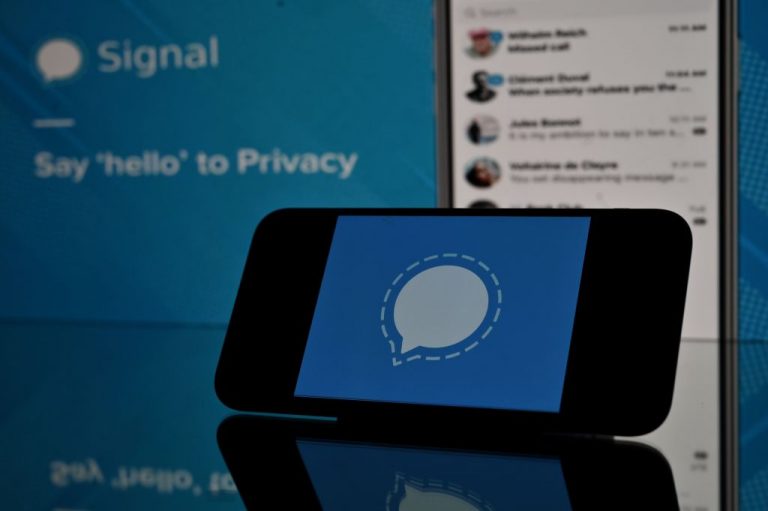As China blocks Signal, an open-source encrypted messaging program, from the mainland, eyes are once again on the Chinese Communist Party’s (CCP) use of WeChat as a tool of surveillance, data collection, and monitoring against Chinese citizens at home and abroad.
According to reports published March 16 from multiple media outlets, Signal would no longer send or receive messages while inside China without the use of a Virtual Private Network (VPN), software that spoofs the origin and routing of internet traffic. CNBC reported that it tested the app on three different devices and could not send or receive messages despite Signal still being available on the Apple App Store.
Signal is an open-source application, meaning its source code is publicly available for download and analysis on a GitHub repository. The app relies on end-to-end encryption through a Signal Protocol in its attempts to keep messages secure. The theory is that direct messages, group chats, files, and voice and video calls are only readable by the senders and receivers and cannot be viewed by the app’s developers themselves.
Signal as a company is registered as a 501c3 non-profit in the United States and relies on donations to fund its staffing and development efforts.
In principle, the difference between Signal and other messaging apps, such as Facebook Messenger, iMessage, WhatsApp, or China’s largest chat app, Tencent-owned WeChat, is that Signal neither collects data on its users nor are communications overseeable by system administrators in Signal’s staff. This policy and feature set are very much at odds with something like the CCP’s “Sharp Eyes” 雪亮 (xueliang, literally “bright as snow”) project, which seeks to use big data surveillance to monitor the words and actions of its entire 1.5 billion person population.
Ensuring netizens use WeChat is why China blocks Signal
Although the CCP has not officially banned Signal, appearing to merely block the app from use by citizens with its Great Firewall, the Party seems to have nipped Signal in the bud before use of the app could go mainstream. According to SensorTower, Signal has been downloaded from the App Store only a little over 500,000 times in China, while WeChat has over a billion users.
Tencent’s WeChat has payment services linked to its application and is ripe with information censorship and tracking of its users, both inside of China and abroad.

A May 2020 Report entitled “We Chat, They Watch: How International Users Unwittingly Build up WeChat’s Chinese Censorship Apparatus” published by The Citizen Lab, a think tank based out of the Munk School of Global Affairs & Public Policy at the University of Toronto, found WeChat surveillance knew no borders. “Communications conducted entirely among non-China-registered accounts are subject to pervasive content surveillance that was previously thought to be exclusively reserved for China-registered accounts,” said the Report in its Key Findings.
The Report also found Tencent was monitoring documents and images sent by non-China-registered accounts for content considered “politically sensitive in China,” adding that the data collection is being used to “invisibly train and build up WeChat’s Chinese political censorship system.”
“Tencent’s responses to data access requests failed to clarify how data from international users is used to enable political censorship of the platform in China,” said the Report.
“In previous work, there was no evidence that these censorship features affected users with accounts that are not registered to China-based phone numbers. These users could send and receive messages that users with China-registered accounts could not. In this report, we show that documents and images shared among non-China-registered accounts are subject to content surveillance and are used to build up the database WeChat uses to censor China-registered accounts.”
Parent company Tencent purchased a majority stake in Riot Games, creator of the widely popular, free-to-play MOBA League of Legends, and Supercell, creator of Clash of Clans, a minority stake in Epic Games, creator of Fortnite, signed a $700 million deal with the NBA to stream its games in China, and owns 5 percent of Tesla, 12 percent of Snapchat parent company Snap, and entered into an agreement with The Lego Group to develop an online social network and gaming platform targeting children.
In 2019, the social marketing website Reddit acquired $150 million in funding from Tencent, drawing significant concerns from users about the installation of CCP data collection, monitoring, and censorship.
Follow us on Twitter or subscribe to our email list














